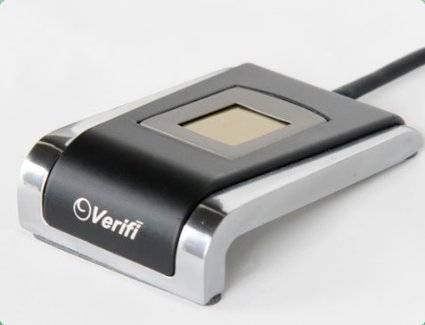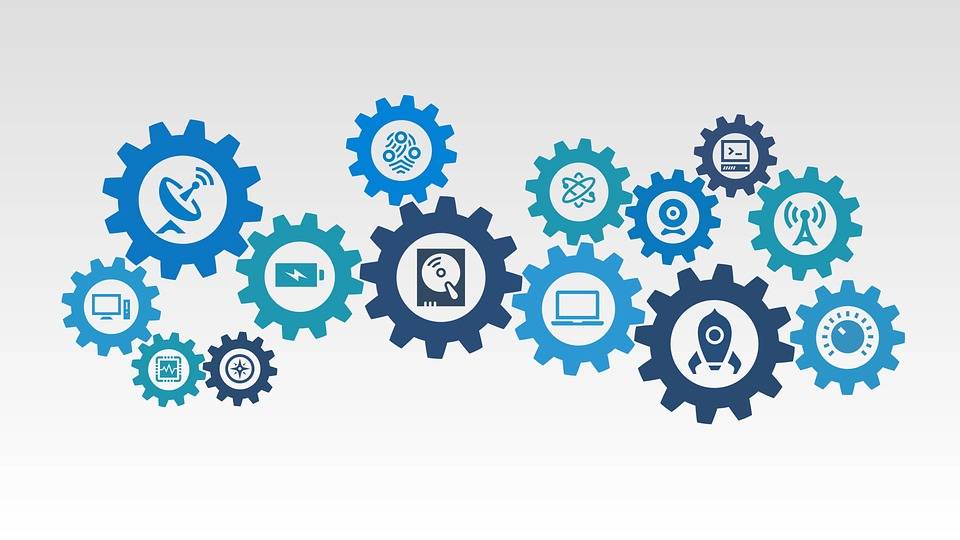The modern criminal is not necessarily after physical items, but rather credit card numbers and personal information. This private data is worth big money to criminals, and unfortunately they have thought up new ways of getting their hands on this information. Luckily, there are a handful of personal data protection gadgets that have been designed specifically to combat the new age criminal. There are not a lot of easy ways to protect yourself when it comes to these digital thieves, but with these products in your arsenal, your personal data stays as it should: personal.
The first personal data protection gadget we recommend is any of Silent Pocket’s line of wallets and bags. Credit card companies have recently begun using RFID (radio-frequency identification) to transmit payments using a unique number for each transaction. Digital criminals can use RFID readers to skim information off of passers-by in a crowded place such as an airport. Criminals can then use each of their credit cards for a single purchase, which can cause quite a bit of damage to an unsuspecting victim’s credit or bank account. Silent Pocket has created a line of RFID blocking wallets and bags, meaning that a thief with a RFID scanner will not be able to read your credit card’s signals from within the wallet or bag. RFID is also being used in things like passports, meaning that personal information could be stolen abroad which could be disastrous for travelers.
Your personal data could also be at risk even when searching the web from the comfort of your own home. Every time you go online, your computer is exposed to viruses, malware, and cyber thieves looking to steal your data or login information. In order to be secure when browsing the internet, you need to appear anonymous. This anonymity is what the iCloak Stik provides its users. The iCloak stik looks like an ordinary USB thumb drive, but it is in fact a powerful personal data protection gadget. The Stik allows users to browse the net without any information being saved to your computer, which means it is essentially impossible to become infected with malware to key-logging software, and your personal information remains a secret to hackers. The nice thing about the Stik is that when you are done online, simply pull it out of your computer and all of your browser activity will vanish, giving you complete online anonymity.
We have all seen those retina scanners or voice recognition locks used my heroes and villains alike in movies, but this technology is actually quite realistic today. Biometrics is the technology that uses unique features of the body such as fingerprints or retinas to scan and identify individuals. The Verifi P2000 fingerprint scanner is a scanner that you can plug into your computer in order to use your fingerprint in place of passwords that can be easily compromised. For only $60, the P2000 is an easy way to beef up your personal data protection without having to remember dozens, or even hundreds of password and username combinations.
The final personal data protection gadget recommended is the Kensington ClickSafe Combination Laptop Lock. This tool is perfect for those who like to work on our computers in public spaces. Working inside of a coffee shop is nice, until you have to pack up your entire setup just to go use the bathroom so nobody will walk away with your computer. The ClickSafe lock uses a steel-composite cable to attach to laptops, monitors, desktops, projectors, printers, docking stations, and even tablets to a secure stationary object. This prevents theft, and with a combination lock, you never have to worry about losing the key and having to leave your laptop at the coffee shop forever. For $35, the ClickSafe is ideal for people who like to work on the go but still prefer personal data protection.
With countless hackers just waiting for a slip-up, it is no wonder why personal data protection has become such an important aspect of technology use. Without the gadgets mentioned above, individuals are helpless in the eyes of digital criminals. In order to prepare yourself for the worst, it is best to stay equipped with up to date security tools that will keep the dangers of the internet at bay.
About The Author: Andrea Eldridge is CEO and co-founder of Nerds On Call, a computer repair company that specializes in on-site and online service for homes and businesses. Andrea is the writer of a weekly column, Nerd Chick Adventures in The Record Searchlight. She prepares TV segments for and appears regularly on CBS, CW and FOX on shows such as Good Day Sacramento, More Good Day Portland, and CBS 13 News, offering viewers technology and lifestyle tips. See Andrea in action at callnerds.com/andrea/.
Video Transcript
Keba: We’re going to stay on the topic of protecting your personal data. Nerds on Call Co-founder Ryan Eldridge is here with us today. Your credit cards and personal data, they’re worth big money to criminals out there, right? So they’re coming up with new ways almost every month, every week, to try to scam us. You brought some stuff with you today, let’s talk about it.
Ryan: As we get more and more connected, and we get more and more electronics to do things that we don’t want to do, unfortunately thieves are coming up with new ways of getting stuff. So, let’s start over here. RFID chips are kind of becoming a bigger thing. Apple Pay, you can go into a restaurant or whatever and you can tap a little thing and you can pay for your meal, or whatever. But those also come on credit cards. In Europe it’s huge! But in your credit card, you have an RFID chip, in your passport there’s an RFID chip. These wallets block that broadcast of the RFID chip. So imagine, you’re in a crowded airport and a criminal walks over and just kind of taps you. He could read everything that’s in your wallet that’s got an RFID chip in it.
Keba: Really?
Ryan: He just has to have a little device–
Keba: And even the newer credit cards, right?
Ryan: Yes.
Keba: Okay.
Ryan: Newer credit cards or newer passports. So both of these wallets block that. These are from a place called SilentPocket.com. They also have a few things that you can put your devices in, like an iPad or an iPhone, you can put it in there and that will stop that and block that RFID chip from being read.
Keba: So wait, it’s something about the way this wallet was created that’s able to block it. I can’t just get a wallet from Target?
Ryan: No, it’s got a specific mesh in there that blocks all those radio signals from being read from an outside device.
Keba: Okay and you got two choices of sizes.
Ryan: And it’s $29 for the little one and $39 for the passport.
Keba: $29 and $39.
Ryan: And they have something for it like their little zip-purses and coin-purses for the ladies and stuff that makes it a little easier.
Keba: What was the name of the company again?
Ryan: It’s called SilentPocket.com.
Keba: Silentpocket.com. $29, $39, protects your credit cards, your passport, and all that important information.
Ryan: So now imagine you’re online; let’s say you go to a strange place. You go to a friend’s house, you’re at work or something, and you want to use a computer to do some secure browsing. Where you might do some banking, Facebook, or something where you don’t want necessarily anybody to see your stuff, and you don’t know the environment that computer has been in. You don’t know if somebody has done something to it, or the library, that’s a great spot. People always load stuff on there.
Keba: Okay, public location.
Ryan: You plug one of these little USB chips into the computer and boot to it by tapping the F8 key on a windows machine or the options key on a Mac machine, and it will boot to this. This has its own environment in it, so that it’s got its own operating system, its own browser and everything. So, you can’t download any viruses or spyware directly to this. You can’t get infected; you can’t get a keylogger which tracks your passwords and stuff.
Keba: And it’s as easy as just plugging this in and you’re saying “Boot to this” or “Connect to it”, so to speak.
Ryan: Well you got to turn the computer all the way off, turn it all the way back on. Tapping the F8 key on a windows key and you’ll get an option to boot into it. And it looks just like Windows, but it’s not.
Keba: How much?
Ryan: That one is $50; they also have a $100 version that has a Word compatible program and an Excel compatible program and also a password manager. So that way it makes it just even easier, that’s pretty cool!
Keba: And this plugs right into the side of the computer?
Ryan: Yeah, just any USB port.
Keba: Okay, what’s the brand of this, the name of this?
Ryan: That was ICLOAK Stik, $50 for the base model.
Keba: And it looks like its icloak.org?
Ryan: Yeah, icloak.org, you got it.
Ryan: So, this is a biometric scanner. We’re used to now on our iPhones being able to press our thumb against it and it will turn it all on. Well, this is for your computer, it plugs into a USB port on your computer. You scan your finger on it, and it will log you into your computer. But, you can also set it up so it logs you into websites too. So, your banking website and any place that you have a password, you can just do this and you can log into it and not have to remember all your passwords.
Keba: And so this basically, because it’s fingerprint protected, no one else can get into it.
Ryan: Nobody else can get into it, it’s just your fingerprint and that way you can secure your machine without have to remember all those passwords.
Keba: I like this one, how much is this and how much is it?
Ryan: That one is called the Verifi P2000 Fingerprint Scanner, it’s $60.
Keba: The Verifi what?
Ryan: It’s called the Verifi P2000, we’ll put a link on the website. It’s $60, plug it into your computer and it just works.
Keba: And this thing just lasts, I mean it’s not going to run out in a year or so. This should have a lifetime of a few years or–
Ryan: Yeah, any USB device is going to last the same as this one here, there’s no battery or anything.
Keba: What else do we have?
Ryan: Lastly, this is kind of old school. This looks like a combination lock for your bike or something.
Keba: It does.
Ryan: But, it’s a combination lock for your computer. Now, most computers have a little tiny little slot there where you can plug one of these handy do-dads into. When you plug it in there and screw this on, now you got a combination lock for your laptop that can be easily removed and stuff. If you think, “Why would I need this”? How many times have you been at Starbucks and you’re just getting some work done and all of the sudden you say, “Oh, I have to get my drink” or “I have to go to the bathroom” or I have to do something, and you leave your laptop just sitting there.
Keba: Right, it’s not worth it to steal it though right, because they won’t be able to get it on.
Ryan: Yeah, if you put this on there and just wrap it around the desk, BOOM!
Keba: They can’t leave with it.
Ryan: This is also great for students at college who are working in public areas.
Keba: Public libraries, okay!
Ryan: That one’s $35, and that’s from Kensington ClickSafe.
Keba: All right, Ryan we’re out of time. Co-found of Nerds on Call, Ryan Eldridge, and thank you! We will put a link on our website, because that was a lot of information.




